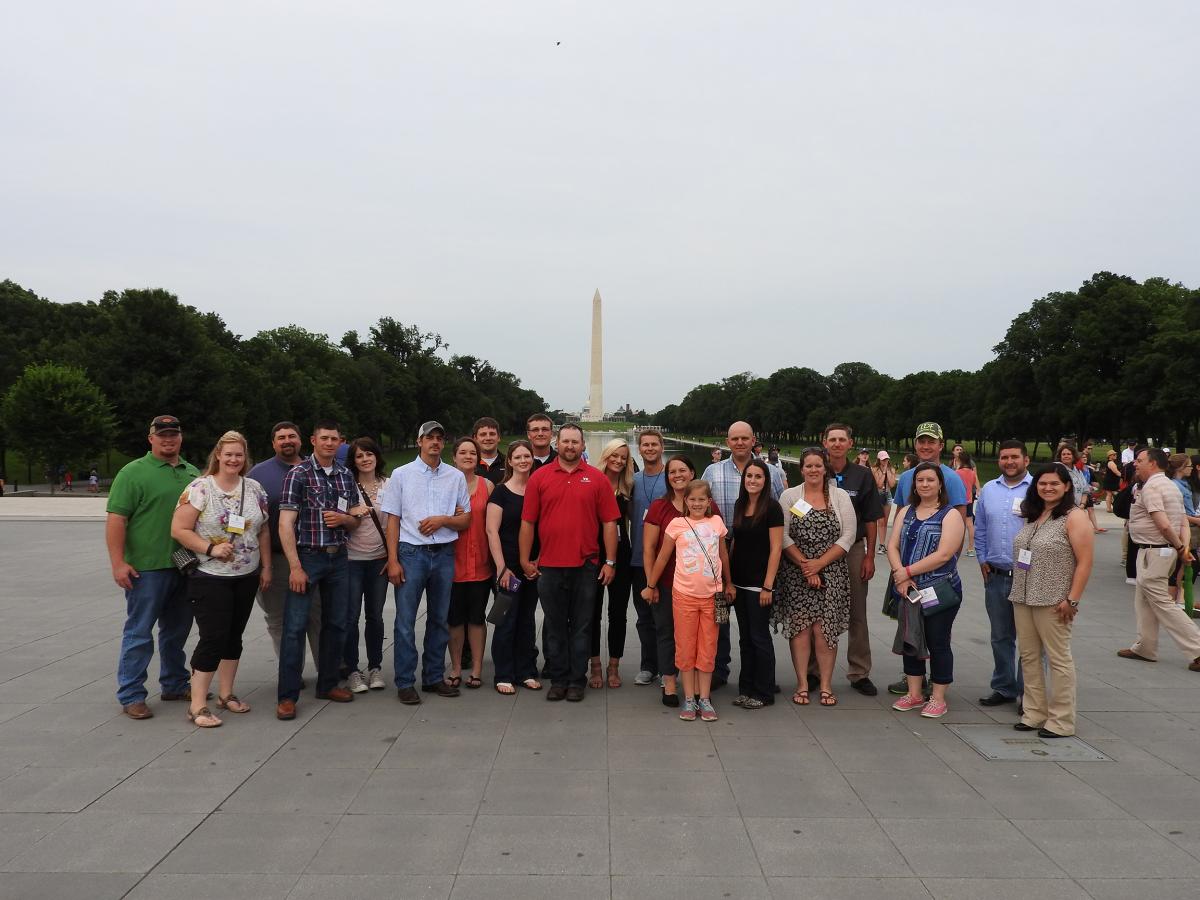 WASHINGTON, DC – At a congressional hearing Tuesday on Capitol Hill, National Milk Producers Federation Chairman Randy Mooney said that well-negotiated trade agreements have the potential to increase export opportunities for America’s dairy farmers, but he warned that the terms of free trade agreements must be tenaciously enforced.
WASHINGTON, DC – At a congressional hearing Tuesday on Capitol Hill, National Milk Producers Federation Chairman Randy Mooney said that well-negotiated trade agreements have the potential to increase export opportunities for America’s dairy farmers, but he warned that the terms of free trade agreements must be tenaciously enforced.
Mooney, a dairy farmer from Rogersville, Missouri, told the House Ways and Means Trade Subcommittee today that U.S. dairy sales in foreign markets have risen dramatically in the 21st century, increasing 435% since 2000. In addition to helping boost milk prices, these exports have “supported more than 120,000 American jobs solely at the dairy production and manufacturing levels,” he said. He cited the World Trade Organization’s GATT agreement, NAFTA, CAFTA, and the agreement with South Korea as examples of trade deals that have benefited America’s dairy farmers. [A full copy of Mooney’s testimony can be found here].
However, Mooney expressed concern that the benefits to dairy farmers from trade agreements are eroded if they are not carefully negotiated and then continuously and judiciously enforced. One recent example of such a situation is in Canada, where efforts to restrict market access for American milk products are growing, apparently in anticipation of the enactment of the Trans-Pacific Partnership agreement.
“NMPF supports TPP. We believe this agreement could deliver important benefits to U.S. dairy farmers provided that it’s properly implemented and enforced,” Mooney said, adding that the pending agreement contains ground-breaking sanitary and phytosanitary, and geographical indication, provisions.
But if TPP partners are allowed to erode existing access in order to undermine future U.S. TPP gains, “it is hard to see how this agreement will live up to its potential to move us forward,” Mooney said. This is particularly a concern with Canada, he indicated.
“We are drawing the line here. This recent action by Canada is a clear violation of their prior trade commitments, as well as the spirit of Trans-Pacific Partnership, and it cannot be permitted,” said Mooney, referring to a decision by Ontario’s provincial government to favor domestic milk proteins designed for use in Canadian cheese manufacturing in a way that disadvantages U.S. milk exports. The regional Ontario milk pricing policy may soon also be implemented across Canada.
Mooney also used his presentation to reiterate NMPF’s concerns with the trade agreement being negotiated between the U.S. and Europe, the Transatlantic Trade and Investment Partnership (TTIP). Rather than serving as a means to remove trade barriers and increase free trade of agricultural products, he said that the European Union “not only is maintaining their existing barriers, but also is actively pushing in TTIP to impose new barriers through special geographical indications provisions.”
Mooney indicated that the EU’s trade negotiation strategy centers on using agreements to extend the application of geographical indications to restrict certain food names exclusively for products made in European nations, even though many such foods are commonly produced and sold around the world, and have been for many years.
“The TTIP cannot be an agreement that expands EU dairy exports while failing to resolve barriers to U.S. dairy exports,” Mooney said. “That is why negotiators need to focus on the underlying problems we face in accessing the EU market, not the isolated symptoms of it.”
Mooney showed members of the Trade Subcommittee a basket full of American agricultural products, from Valencia oranges to asiago cheese to various meat products. Among the food items in the basket are “several of the common name products that the United States currently cannot export to Europe or other foreign markets. Compounding those serious export challenges, the EU is now working to prevent us from selling products with these common food names even in the United States as well,” Mooney said.
Given that European food companies already enjoy a major export advantage to the U.S., “America’s dairy farmers will not support a TTIP agreement that incorporates policies aimed at artificially increasing the $1.5 billion transatlantic dairy trade deficit. A solid deal must level the playing field for U.S. dairy exports.”
###
The National Milk Producers Federation (NMPF), based in Arlington, VA, develops and carries out policies that advance the well-being of dairy producers and the cooperatives they own. The members of NMPF’s cooperatives produce the majority of the U.S. milk supply, making NMPF the voice of dairy producers on Capitol Hill and with government agencies. For more on NMPF’s activities, visit our website at www.nmpf.org.
 Nearly 60 young farmers joined a large contingent of NMPF board members who descended upon Capitol Hill in early June to advocate for a sensible solution to the dispute over the proper labeling of foods produced using biotechnology. The Capitol Hill blitz demonstrated a groundswell of grassroots support that helped lead to the now imminent congressional action on the measure.
Nearly 60 young farmers joined a large contingent of NMPF board members who descended upon Capitol Hill in early June to advocate for a sensible solution to the dispute over the proper labeling of foods produced using biotechnology. The Capitol Hill blitz demonstrated a groundswell of grassroots support that helped lead to the now imminent congressional action on the measure.
 Efforts to adopt a national framework for the labeling of foods made with biotechnology are nearing successful completion on Capitol Hill, now that Senate leaders have agreed on a compromise approach to achieve that goal. The Senate is expected to take a preliminary cloture vote on the measure on Wednesday afternoon which, if successful, will be followed by a vote on final passage on Friday.
Efforts to adopt a national framework for the labeling of foods made with biotechnology are nearing successful completion on Capitol Hill, now that Senate leaders have agreed on a compromise approach to achieve that goal. The Senate is expected to take a preliminary cloture vote on the measure on Wednesday afternoon which, if successful, will be followed by a vote on final passage on Friday.
 ARLINGTON, VA – The National Milk Producers Federation has updated its Margin Protection Program website – futurefordairy.com – with new materials to assist dairy producers considering enrollment in the third year of the federal dairy safety net program. The enrollment period officially opened July 1 and ends September 30, 2016, for coverage in calendar year 2017. Farmers already participating in the program can change their coverage level during this three-month enrollment window.
ARLINGTON, VA – The National Milk Producers Federation has updated its Margin Protection Program website – futurefordairy.com – with new materials to assist dairy producers considering enrollment in the third year of the federal dairy safety net program. The enrollment period officially opened July 1 and ends September 30, 2016, for coverage in calendar year 2017. Farmers already participating in the program can change their coverage level during this three-month enrollment window. ARLINGTON, VA – The National Milk Producers Federation joined a group of more than 1,000 agriculture, business and food companies today in urging the Senate to pass legislation that would create a uniform, federal system for labeling foods produced using biotechnology. NMPF and its 31 member cooperatives were among the 1,065 signers of the letter, as were dozens of dairy food companies and state dairy farm associations.
ARLINGTON, VA – The National Milk Producers Federation joined a group of more than 1,000 agriculture, business and food companies today in urging the Senate to pass legislation that would create a uniform, federal system for labeling foods produced using biotechnology. NMPF and its 31 member cooperatives were among the 1,065 signers of the letter, as were dozens of dairy food companies and state dairy farm associations. WASHINGTON, DC – At a congressional hearing Tuesday on Capitol Hill, National Milk Producers Federation Chairman Randy Mooney said that well-negotiated trade agreements have the potential to increase export opportunities for America’s dairy farmers, but he warned that the terms of free trade agreements must be tenaciously enforced.
WASHINGTON, DC – At a congressional hearing Tuesday on Capitol Hill, National Milk Producers Federation Chairman Randy Mooney said that well-negotiated trade agreements have the potential to increase export opportunities for America’s dairy farmers, but he warned that the terms of free trade agreements must be tenaciously enforced.



